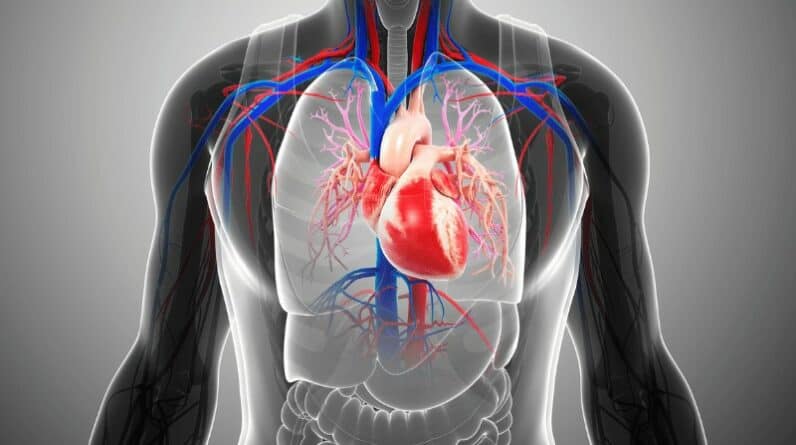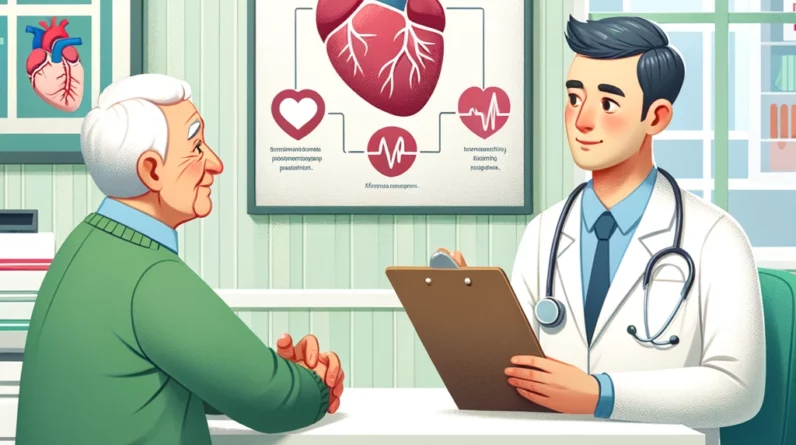
Dementia Discovery That is Leaving Doctors Speechless (Try This Tonight)
Better than Morphine For Joint Pain… Yet Safer Than Aspirin?
Retire With Freedom. Start Earning Extra Cash Today.
Anger And Heart Disease – What You Should Know
Anger is one of the most powerful emotions, but it can also have some very negative effects on your body. It can raise your blood pressure and heart rate and lead to a range of health problems from short-term heart palpitations to more serious conditions like stroke and chronic conditions. What’s more, anger is often linked with aggressive behavior which can put you in danger.
In order to avoid anger’s negative effects on your body, try focusing on the source instead of what angered you in the first place. Focusing on the source can help you figure out why someone might have angered you. It allows you to deal with the problem, rather than letting your anger build up inside of you. It can also help you become aware of why someone is trying to take advantage of or cause harm to you and can help you learn to deal with it.
If focusing on the source does not work, consider using breathing exercises to prevent anger from building up in your body. This can allow for a more positive outlook which can reduce your anger levels. Use this time between getting angry and when to lash out as a way of cooling off. When things calm down, come back and talk about what happened in a more productive way instead of yelling at each other.
Avoiding anger can aid in preventing heart conditions such as heart failure, high blood pressure, and stroke. Avoiding anger is best accomplished by focusing on the source and using breathing exercises to prevent the body from feeling the effects of rage. If this does not work, cooling off between getting angry and when you lash out at someone else can help you deal with problems in a more productive way.
Anger And Heart Disease – Steps To Anger Management
There are steps that you can take to manage your anger or prevent others from becoming enraged in specific situations. You might find that you have a problem with anger if you frequently become angry for no good reason, or if you have started to lose friends and family because of your temper. You should also think about your own health; are you having problems related to your anger, like headaches, insomnia, or depression?
It is a good idea to see a professional therapist if you are finding it hard to control your anger. They can help you diagnose the source of your anger and teach you techniques for managing it better. With the help of a professional therapist, most people can learn how to manage their anger without becoming violent.
It is also important to remember that everyone has the right to express their anger. If a situation raises your blood pressure, and you are justifiably angry, open up and talk about what happened. You may find that it is not worth getting angry over at all. Venting out your anger will cause you to feel better as well as relieving stress in your body, which can make you stronger overall.

Anger And Heart Disease – Helpful Tips For Managing Your Anger
If someone is trying to hurt you in any way, whether physically or emotionally, try thinking about how you would like them to handle the situation instead of letting yourself get angry.
If you focus on the cause of your anger, instead of the person who is hurting you, you will be more likely to find a solution.
Avoid conflict as much as possible. It will only lead to an argument and nothing good can come from it. Instead of trying to fix things by yourself, talk to other people about it first. You might be surprised at how many people will agree with you about a particular issue. If you can get them on board, then they can help make the problem better than it ever was before.
If you are angry, try not to feel sorry for yourself. The only “victim” in this situation is the person who is bullying you or causing you pain.
When you are angry, make sure that your anger does not manifest itself in other areas of your life. If someone makes a mistake at work, for instance, think about the way they would like to have been handled instead of thinking about how their mistake affected you personally and what kind of punishment they should be receiving.
If a situation at work affects your family, consider the effects on those around you rather than staying angry at that one person directly involved in the problem.
If you care deeply about a certain person, try talking to him or her about how you feel instead of staying angry at them. This will allow them to have an opportunity to take responsibility for their actions and make amends.
If you are angry with someone, make sure that you stay calm and that the other person knows how badly he or she affected your life. Talk in a conversational tone but avoid becoming angry yourself if possible. If anger does flare up, try focusing on the source instead of thinking about what has just happened in the first place. Breathing exercises can help alleviate some of the stress caused by anger.
Stress will never completely go away. You must learn how to correctly manage the stress in your life in order to become a healthier person. Take some time to evaluate your attitude and feelings when you are feeling stress, so you can better deal with anger or other emotions.
Think about the fact that all people have stress in their lives; it is something we all have to handle, but no one can do it alone. The way you handle stress will affect not only you but everyone around you as well. If you work at learning how to better manage your life in order to cope with stressful situations, the end result is that everyone around you will also be happier because of it.
Finally, using humor can help you deal with anger as well. It can also help you to see the situation in a different way which might make it easier to move on. That’s because no matter how angry you are at something or someone, being able to laugh about it will show that it is not the end of the world. It will show that you can find good in even the worst of times.
Anger And Heart Disease – Conclusion
Anger is a powerful emotion that can have very negative effects on your body. By focusing on what makes you angry instead of what angered you, and using breathing exercises and humor to calm yourself down, you can stay healthier and happier for longer throughout your life.
Disclaimer: The information in this article is intended for educational and entertainment purposes only and should not be used instead of or contrary to that of a medical professional. Before taking supplements, starting a new diet, or embarking on a new exercise regime please consult a medical or nutritional professional. The owners of “Getting Healthy After 50” are not medical professionals and are simply redistributing information that is freely available on the internet.






